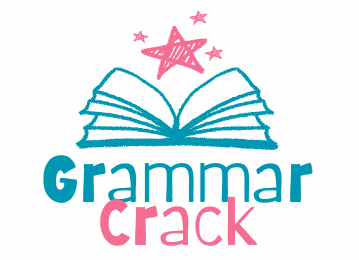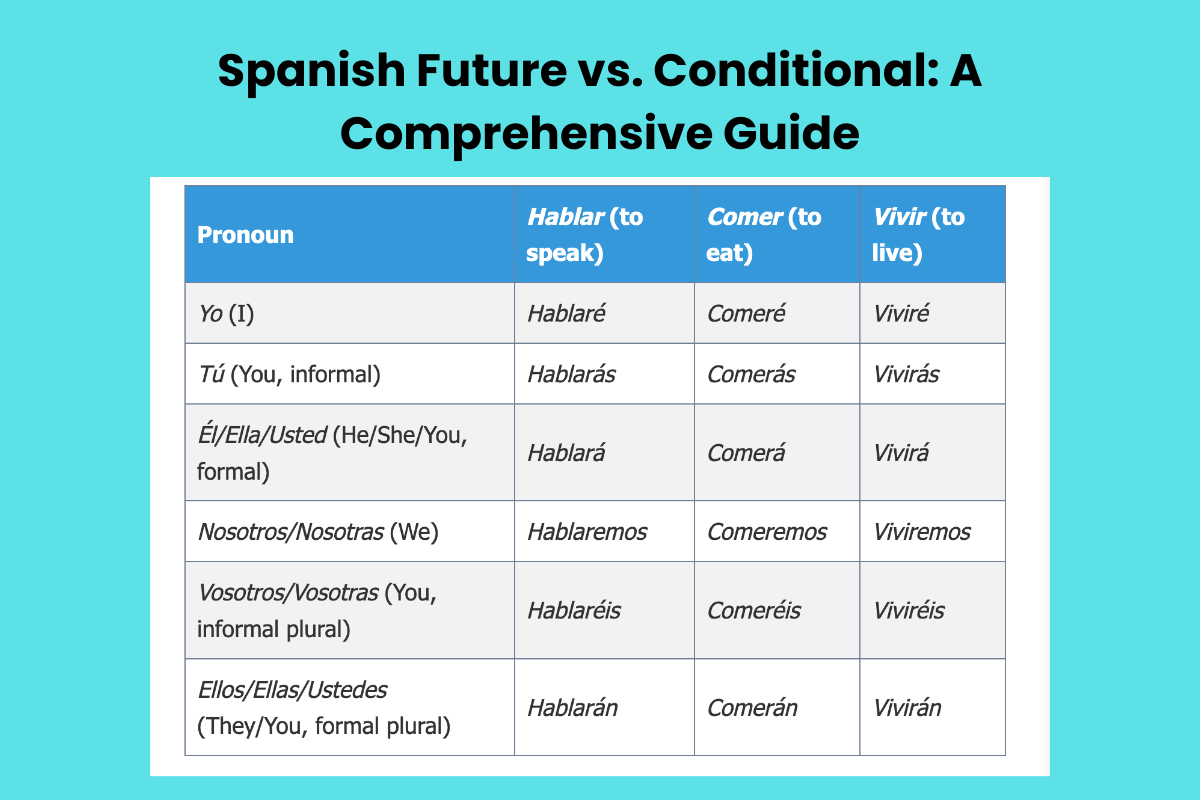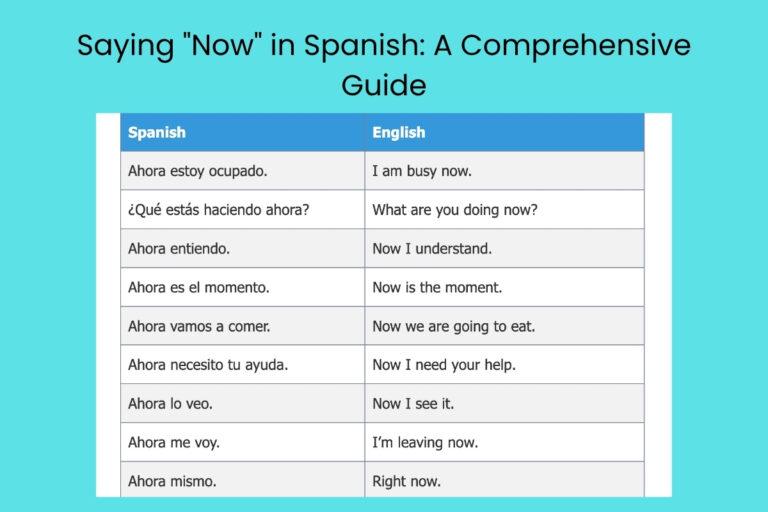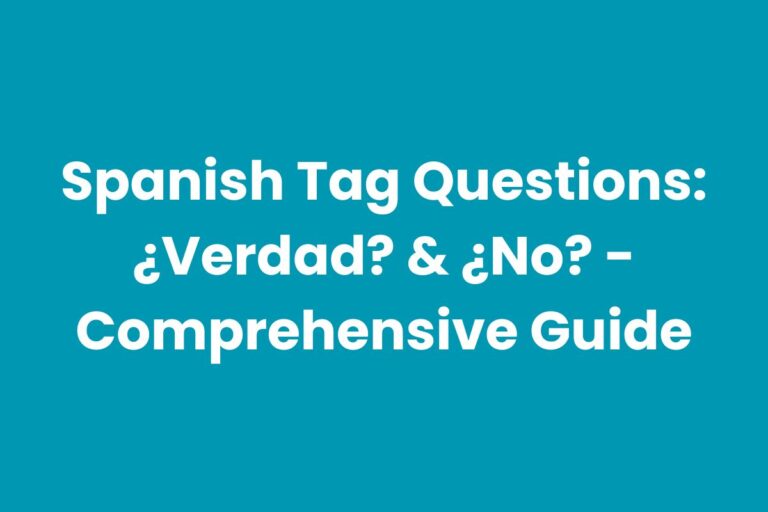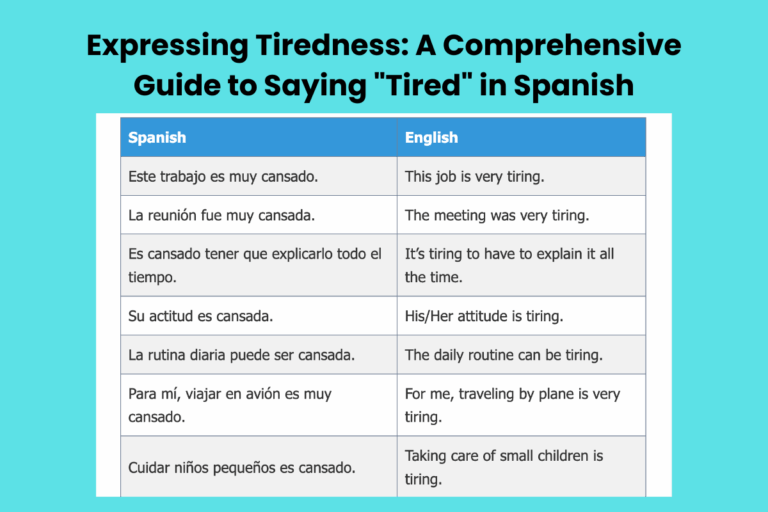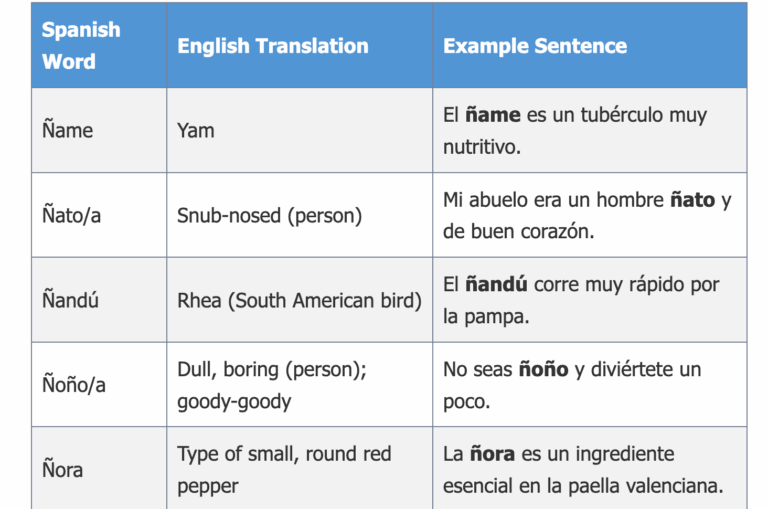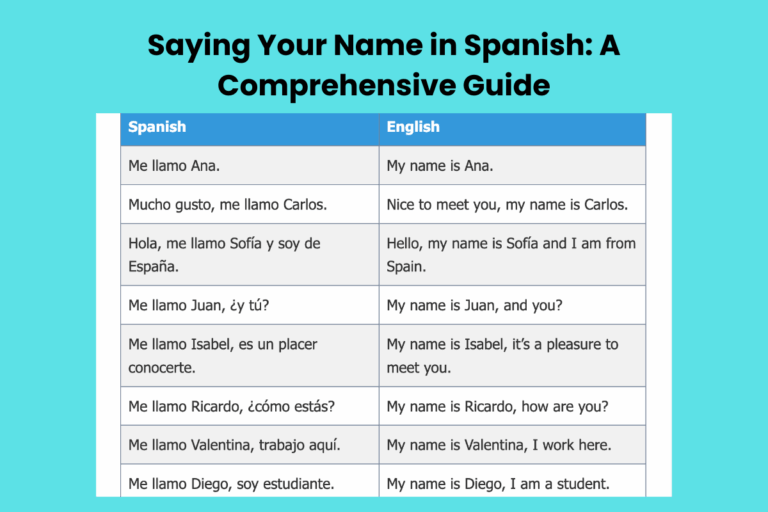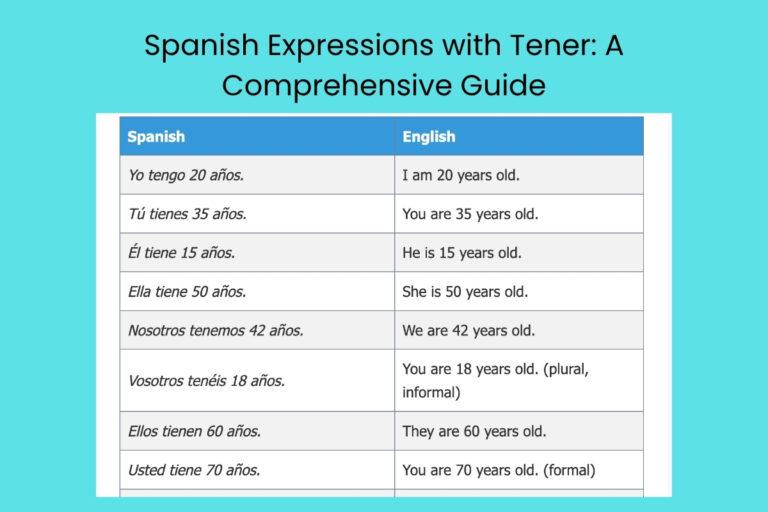Spanish Future vs. Conditional: A Comprehensive Guide
Mastering the nuances of the Spanish future and conditional tenses is crucial for expressing actions that will happen or would happen. These tenses are essential for discussing plans, predictions, possibilities, and hypothetical situations.
This comprehensive guide breaks down the complexities of these tenses, providing clear explanations, numerous examples, and practical exercises. Whether you are a beginner or an advanced learner, this article will equip you with the knowledge and skills to confidently use the future and conditional tenses in Spanish.
Understanding these tenses not only improves your grammatical accuracy but also enhances your ability to communicate effectively in various contexts, from casual conversations to formal presentations. This article aims to provide a solid foundation in the Spanish future and conditional tenses, ensuring that you can express your ideas with precision and fluency.
By the end of this article, you will be able to differentiate between the future and conditional tenses, construct sentences correctly, and avoid common mistakes.
Table of Contents
- Definition of Future and Conditional Tenses
- Structural Breakdown
- Types and Categories
- Examples
- Usage Rules
- Common Mistakes
- Practice Exercises
- Advanced Topics
- FAQ
- Conclusion
Definition of Future and Conditional Tenses
The future tense in Spanish (el futuro simple or el futuro imperfecto) is used to express actions or events that will occur at some point in the future. It can also convey probability or speculation about the present. It is one of the most common ways to talk about what will happen.
The conditional tense (el condicional simple or el pretérito perfecto condicional) is used to express actions that would occur, hypothetical situations, polite requests, or uncertainty. It is often used in conjunction with the subjunctive mood in conditional sentences.
Both tenses are crucial for expressing complex ideas and engaging in nuanced conversations. Understanding their distinct roles and proper usage is essential for mastering Spanish grammar.
Structural Breakdown
Formation of the Future Tense
The Spanish future tense is formed by adding specific endings to the infinitive of the verb. These endings are the same for -ar, -er, and -ir verbs. The infinitive acts as the stem.
The future tense endings are: -é, -ás, -á, -emos, -éis, -án.
Here’s a table illustrating the conjugation of regular verbs in the future tense:
| Pronoun | Hablar (to speak) | Comer (to eat) | Vivir (to live) |
|---|---|---|---|
| Yo (I) | Hablaré | Comeré | Viviré |
| Tú (You, informal) | Hablarás | Comerás | Vivirás |
| Él/Ella/Usted (He/She/You, formal) | Hablará | Comerá | Vivirá |
| Nosotros/Nosotras (We) | Hablaremos | Comeremos | Viviremos |
| Vosotros/Vosotras (You, informal plural) | Hablaréis | Comeréis | Viviréis |
| Ellos/Ellas/Ustedes (They/You, formal plural) | Hablarán | Comerán | Vivirán |
For example, “Yo hablaré español” means “I will speak Spanish.”
Formation of the Conditional Tense
The conditional tense is also formed by adding endings to the infinitive of the verb, using the same stem as the future tense. However, the endings are different.
The conditional tense endings are: -ía, -ías, -ía, -íamos, -íais, -ían.
Here’s a table illustrating the conjugation of regular verbs in the conditional tense:
| Pronoun | Hablar (to speak) | Comer (to eat) | Vivir (to live) |
|---|---|---|---|
| Yo (I) | Hablaría | Comería | Viviría |
| Tú (You, informal) | Hablarías | Comerías | Vivirías |
| Él/Ella/Usted (He/She/You, formal) | Hablaría | Comería | Viviría |
| Nosotros/Nosotras (We) | Hablaríamos | Comeríamos | Viviríamos |
| Vosotros/Vosotras (You, informal plural) | Hablaríais | Comeríais | Viviríais |
| Ellos/Ellas/Ustedes (They/You, formal plural) | Hablarían | Comerían | Vivirían |
For example, “Yo hablaría español si tuviera tiempo” means “I would speak Spanish if I had time.”
Irregular Verbs
Some verbs have irregular stems in both the future and conditional tenses. However, the endings remain the same.
It’s important to memorize these irregular stems.
Here’s a table of some common irregular verbs and their future/conditional stems:
| Infinitive | Future/Conditional Stem | Example (Future) | Example (Conditional) |
|---|---|---|---|
| Decir (to say) | Dir- | Diré (I will say) | Diría (I would say) |
| Hacer (to do/make) | Har- | Haré (I will do/make) | Haría (I would do/make) |
| Poder (to be able to) | Podr- | Podré (I will be able to) | Podría (I would be able to) |
| Querer (to want) | Querr- | Querré (I will want) | Querría (I would want) |
| Saber (to know) | Sabr- | Sabré (I will know) | Sabría (I would know) |
| Poner (to put) | Pondr- | Pondré (I will put) | Pondría (I would put) |
| Tener (to have) | Tendr- | Tendré (I will have) | Tendría (I would have) |
| Salir (to leave) | Saldr- | Saldré (I will leave) | Saldría (I would leave) |
| Venir (to come) | Vendr- | Vendré (I will come) | Vendría (I would come) |
For example, instead of saying *”Yo hacere”*, you would say *”Yo haré”* (I will do).
Types and Categories
Simple Future
The simple future (futuro simple) is used to express actions that will happen in the future. It can also express probability or conjecture in the present.
Examples:
- Viajaré a España el próximo año. (I will travel to Spain next year.)
- ¿Qué hora será? (What time could it be?)
Future Perfect
The future perfect (futuro perfecto) is used to express actions that will have been completed by a certain time in the future. It is formed with the future tense of the auxiliary verb haber (to have) + the past participle.
Formula: haber (future) + past participle
Examples:
- Para mañana, habré terminado el trabajo. (By tomorrow, I will have finished the work.)
- Cuando llegues, ya habremos cenado. (When you arrive, we will have already eaten dinner.)
Simple Conditional
The simple conditional (condicional simple) is used to express actions that would happen, probabilities in the past, polite requests, or suggestions.
Examples:
- Me gustaría ir al cine. (I would like to go to the cinema.)
- ¿Podrías ayudarme? (Could you help me?)
- Supongo que serían las diez. (I suppose it was around ten o’clock.)
Conditional Perfect
The conditional perfect (condicional compuesto) is used to express actions that would have happened but did not, often due to a condition that was not met. It is formed with the conditional tense of the auxiliary verb haber (to have) + the past participle.
Formula: haber (conditional) + past participle
Examples:
- Habría ido a la fiesta si no hubiera estado enfermo. (I would have gone to the party if I hadn’t been sick.)
- Habríamos ganado el partido si hubiéramos jugado mejor. (We would have won the game if we had played better.)
Examples
Future Tense Examples
The following table provides a wide range of examples showcasing the use of the Spanish future tense in various contexts. Each example is designed to illustrate the nuances of the tense and its application in real-life situations.
| Sentence | Translation |
|---|---|
| Mañana lloverá. | It will rain tomorrow. |
| El próximo año viajaré a Europa. | Next year I will travel to Europe. |
| ¿Vendrás a mi fiesta? | Will you come to my party? |
| Estudiaré español todos los días. | I will study Spanish every day. |
| Compraremos una casa nueva. | We will buy a new house. |
| Ellos trabajarán mucho. | They will work a lot. |
| ¿Qué harás el fin de semana? | What will you do on the weekend? |
| Te llamaré mañana. | I will call you tomorrow. |
| Visitaremos a nuestros amigos. | We will visit our friends. |
| Ella cantará en el concierto. | She will sing at the concert. |
| Yo cocinaré la cena. | I will cook dinner. |
| Escribirás un libro. | You will write a book. |
| ¿Dónde vivirás en el futuro? | Where will you live in the future? |
| Leeremos más libros. | We will read more books. |
| Aprenderán a bailar salsa. | They will learn to dance salsa. |
| ¿Me amarás por siempre? | Will you love me forever? |
| Correré en la maratón. | I will run in the marathon. |
| Abriré la ventana. | I will open the window. |
| Subiré la montaña. | I will climb the mountain. |
| Recibiré tu carta. | I will receive your letter. |
| Asistiré a la reunión. | I will attend the meeting. |
| Creceré como persona. | I will grow as a person. |
| Entenderé el problema. | I will understand the problem. |
| Venderé mi coche. | I will sell my car. |
| Compraré un regalo. | I will buy a gift. |
Conditional Tense Examples
The following table provides examples of the conditional tense, illustrating its use in hypothetical situations, polite requests, and expressions of uncertainty. These examples are designed to help learners understand the subtle differences between the conditional and other tenses.
| Sentence | Translation |
|---|---|
| Me gustaría viajar a Japón. | I would like to travel to Japan. |
| Si tuviera dinero, compraría un coche nuevo. | If I had money, I would buy a new car. |
| ¿Podrías ayudarme con esto? | Could you help me with this? |
| Iría al cine contigo, pero estoy ocupado. | I would go to the cinema with you, but I am busy. |
| Comería pizza todos los días si pudiera. | I would eat pizza every day if I could. |
| Ellos trabajarían más si les pagaran mejor. | They would work more if they were paid better. |
| ¿Qué harías si ganaras la lotería? | What would you do if you won the lottery? |
| Te llamaría, pero no tengo tu número. | I would call you, but I don’t have your number. |
| Visitaríamos a nuestros abuelos si tuviéramos tiempo. | We would visit our grandparents if we had time. |
| Ella cantaría en el concierto si no estuviera nerviosa. | She would sing at the concert if she weren’t nervous. |
| Yo cocinaría, pero estoy cansado. | I would cook, but I am tired. |
| Escribirías una carta si tuvieras un bolígrafo. | You would write a letter if you had a pen. |
| ¿Dónde vivirías si pudieras elegir? | Where would you live if you could choose? |
| Leeríamos más si tuviéramos tiempo. | We would read more if we had time. |
| Aprenderían más rápido con un buen profesor. | They would learn faster with a good teacher. |
| Te amaría siempre si fueras real. | I would love you always if you were real. |
| Correría más rápido si estuviera en forma. | I would run faster if I were in shape. |
| Abriría la puerta si tuviera la llave. | I would open the door if I had the key. |
| Subiría la montaña si no fuera tan alta. | I would climb the mountain if it weren’t so high. |
| Recibiría el premio si fuera el mejor. | I would receive the prize if I were the best. |
| Asistiría a la boda si me invitaran. | I would attend the wedding if I were invited. |
| Crecería más rápido si comiera bien. | I would grow faster if I ate well. |
| Entendería mejor si me lo explicaras. | I would understand better if you explained it to me. |
| Vendería mi alma por ti. | I would sell my soul for you. |
| Compraría una isla. | I would buy an island. |
Combined Future and Conditional Examples
This table presents examples that contrast and combine the future and conditional tenses, highlighting their distinct uses in different scenarios. These examples demonstrate how the choice between the two tenses affects the meaning of a sentence.
| Sentence | Tense | Translation |
|---|---|---|
| Si estudio, aprobaré el examen. | Future | If I study, I will pass the exam. |
| Si estudiara, aprobaría el examen. | Conditional | If I studied, I would pass the exam. |
| Mañana iré al mercado. | Future | Tomorrow I will go to the market. |
| Me gustaría ir al mercado. | Conditional | I would like to go to the market. |
| Cuando tenga tiempo, te llamaré. | Future | When I have time, I will call you. |
| Si tuviera tiempo, te llamaría. | Conditional | If I had time, I would call you. |
| El año que viene compraré una casa. | Future | Next year I will buy a house. |
| Si tuviera dinero, compraría una casa. | Conditional | If I had money, I would buy a house. |
| Si me ayudas, terminaré rápido. | Future | If you help me, I will finish quickly. |
| Si me ayudaras, terminaría rápido. | Conditional | If you helped me, I would finish quickly. |
| Si voy a la fiesta, bailaré toda la noche. | Future | If I go to the party, I will dance all night. |
| Si fuera a la fiesta, bailaría toda la noche. | Conditional | If I went to the party, I would dance all night. |
| Si ahorro dinero, viajaré por el mundo. | Future | If I save money, I will travel the world. |
| Si ahorrara dinero, viajaría por el mundo. | Conditional | If I saved money, I would travel the world. |
| Si aprendo español, hablaré con fluidez. | Future | If I learn Spanish, I will speak fluently. |
| Si aprendiera español, hablaría con fluidez. | Conditional | If I learned Spanish, I would speak fluently. |
| Si tengo la oportunidad, trabajaré en el extranjero. | Future | If I have the opportunity, I will work abroad. |
| Si tuviera la oportunidad, trabajaría en el extranjero. | Conditional | If I had the opportunity, I would work abroad. |
| Si estudio medicina, seré doctor. | Future | If I study medicine, I will be a doctor. |
| Si estudiara medicina, sería doctor. | Conditional | If I studied medicine, I would be a doctor. |
| Si corro todos los días, estaré en forma. | Future | If I run every day, I will be in shape. |
| Si corriera todos los días, estaría en forma. | Conditional | If I ran every day, I would be in shape. |
| Si cocino, comeremos algo delicioso. | Future | If I cook, we will eat something delicious. |
| Si cocinara, comeríamos algo delicioso. | Conditional | If I cooked, we would eat something delicious. |
Usage Rules
Future Tense Usage
The future tense is primarily used to express actions that will occur in the future. It can also be used to express probability or conjecture in the present.
Key uses of the future tense:
- Expressing future actions: “Iré al cine mañana.” (I will go to the cinema tomorrow.)
- Expressing probability in the present: “¿Qué hora será?” (What time could it be?)
- Making promises: “Te ayudaré con tu tarea.” (I will help you with your homework.)
- Expressing predictions: “El próximo año lloverá más.” (Next year it will rain more.)
Conditional Tense Usage
The conditional tense is used to express hypothetical situations, polite requests, or uncertainty. It is often used in conjunction with the subjunctive mood in conditional sentences.
Key uses of the conditional tense:
- Expressing hypothetical situations: “Si tuviera dinero, viajaría por el mundo.” (If I had money, I would travel the world.)
- Making polite requests: “¿Podrías ayudarme?” (Could you help me?)
- Expressing uncertainty: “Supongo que serían las diez.” (I suppose it was around ten o’clock.)
- Expressing desires or preferences: “Me gustaría ir al cine.” (I would like to go to the cinema.)
Exceptions and Special Cases
There are some cases where the future and conditional tenses can be used in slightly different ways or where their meanings may overlap.
- Using the future tense to express probability: Sometimes, the future tense can be used to express a degree of uncertainty or conjecture about a present situation. For example, “Estará en casa ahora.” (He is probably at home now.)
- Using the conditional tense for softening requests: The conditional tense can make a request sound more polite and less direct. For example, “Querría un café, por favor.” (I would like a coffee, please.)
Common Mistakes
One common mistake is confusing the future and conditional tenses, especially in conditional sentences. Remember that the conditional tense expresses what *would* happen, while the future tense expresses what *will* happen.
Here are some examples of common mistakes and their corrections:
| Incorrect | Correct | Explanation |
|---|---|---|
| Si tendría dinero, compraría un coche. | Si tuviera dinero, compraría un coche. | The correct form is the imperfect subjunctive (tuviera) in the “si” clause. |
| Yo hablaré si tendría tiempo. | Yo hablaré si tengo tiempo. | The “si” clause should use the present indicative when the main clause is in the future. |
| Haría la tarea mañana. | Haré la tarea mañana. | Use the future tense for actions that will happen tomorrow. |
| Podría ir a la fiesta mañana. | Puedo ir a la fiesta mañana. / Iré a la fiesta mañana, posiblemente. | “Podría” implies possibility but not certainty. Use “puedo” or add “posiblemente” to the future to indicate possibility. |
Practice Exercises
Complete the following sentences by conjugating the verb in parentheses into the correct future or conditional tense.
| Question | Answer |
|---|---|
| 1. Yo (viajar) ________ a España el próximo año. | 1. Yo (viajar) viajaré a España el próximo año. |
| 2. Si tuviera tiempo, (leer) ________ más libros. | 2. Si tuviera tiempo, (leer) leería más libros. |
| 3. ¿(Venir) ________ tú a mi fiesta? | 3. ¿(Venir) Vendrás tú a mi fiesta? |
| 4. Él (estudiar) ________ español todos los días. | 4. Él (estudiar) estudiará español todos los días. |
| 5. Nosotros (comprar) ________ una casa nueva. | 5. Nosotros (comprar) compraremos una casa nueva. |
| 6. Ellos (trabajar) ________ mucho si les pagaran mejor. | 6. Ellos (trabajar) trabajarían mucho si les pagaran mejor. |
| 7. ¿Qué (hacer) ________ tú el fin de semana? | 7. ¿Qué (hacer) harás tú el fin de semana? |
| 8. Te (llamar) ________ mañana. | 8. Te (llamar) llamaré mañana. |
| 9. Nosotros (visitar) ________ a nuestros amigos si tuviéramos tiempo. | 9. Nosotros (visitar) visitaríamos a nuestros amigos si tuviéramos tiempo. |
| 10. Ella (cantar) ________ en el concierto si no estuviera nerviosa. | 10. Ella (cantar) cantaría en el concierto si no estuviera nerviosa. |
| 11. Yo (cocinar) ________ la cena si no estuviera cansado. | 11. Yo (cocinar) cocinaría la cena si no estuviera cansado. |
| 12. Tú (escribir) ________ un libro si tuvieras inspiración. | 12. Tú (escribir) escribirías un libro si tuvieras inspiración. |
| 13. ¿Dónde (vivir) ________ tú en el futuro? | 13. ¿Dónde (vivir) vivirás tú en el futuro? |
| 14. Nosotros (leer) ________ más libros si tuviéramos tiempo. | 14. Nosotros (leer) leeríamos más libros si tuviéramos tiempo. |
| 15. Ellos (aprender) ________ a bailar salsa si tomaran clases. | 15. Ellos (aprender) aprenderían a bailar salsa si tomaran clases. |
Advanced Topics
Future Subjunctive (Archaic)
The future subjunctive (futuro de subjuntivo) is an archaic tense in Spanish that is rarely used in modern spoken language. It was used in legal and formal documents to express future actions under certain conditions. While it’s not commonly used, understanding it can be helpful for reading older texts.
Example: “Donare, si viviere.” (I will donate, if I live.)
Conditional in Hypothetical Sentences
The conditional tense is crucial in hypothetical sentences, particularly in Type 2 and Type 3 conditional sentences. Type 2 conditionals express unreal or improbable situations, while Type 3 conditionals express situations that did not happen in the past.
Type 2 Conditional: Si + imperfect subjunctive, conditional simple
Example: Si tuviera más tiempo, viajaría por el mundo. (If I had more time, I would travel the world.)
Type 3 Conditional: Si + pluperfect subjunctive, conditional perfect
Example: Si hubiera estudiado, habría aprobado el examen. (If I had studied, I would have passed the exam.)
FAQ
- What is the difference between the future and conditional tenses in Spanish?
The future tense expresses actions that will happen, while the conditional tense expresses actions that would happen under certain conditions or hypothetical situations. The future tense is used for plans, predictions, and certainties about the future. The conditional tense is used for polite requests, suggestions, and hypothetical scenarios, often linked to a condition expressed in the subjunctive mood.
- How do I form the future tense?
The future tense is formed by adding specific endings to the infinitive of the verb: -é, -ás, -á, -emos, -éis, -án. For example, hablar + é = hablaré (I will speak).
- How do I form the conditional tense?
The conditional tense is formed by adding specific endings to the infinitive of the verb: -ía, -ías, -ía, -íamos, -íais, -ían. For example, hablar + ía = hablaría (I would speak).
- Are there any irregular verbs in the future and conditional tenses?
Yes, some verbs have irregular stems in both the future and conditional tenses. Common irregular verbs include decir (dir-), hacer (har-), poder (podr-), querer (querr-), saber (sabr-), poner (pondr-), tener (tendr-), salir (saldr-), and venir (vendr-).
- Can the future tense be used to express probability?
Yes, the future tense can be used to express probability or conjecture in the present. For example, “¿Qué hora será?” (What time could it be?).
- When should I use the conditional tense?
Use the conditional tense to express hypothetical situations, polite requests, uncertainty, or desires. It is often used in conjunction with the subjunctive mood in conditional sentences.
- What is the future perfect tense?
The future perfect tense expresses actions that will have been completed by a certain time in the future. It is formed with the future tense of the auxiliary verb haber (to have) + the past participle.
- What is the conditional perfect tense?
The conditional perfect tense expresses actions that would have happened but did not, often due to a condition that was not met. It is formed with the conditional tense of the auxiliary verb haber (to have) + the past participle.
- How can I avoid common mistakes with the future and conditional tenses?
Pay attention to the context and the meaning you want to convey. Remember that the future tense is for what *will* happen, while the conditional tense is for what *would* happen. Practice using the tenses in different scenarios and review the rules for conditional sentences.
- Is the future subjunctive still used in modern Spanish?
No, the future subjunctive is an archaic tense and is rarely used in modern spoken language. However, it may be found in legal and formal documents.
Conclusion
Mastering the Spanish future and conditional tenses is essential for expressing a wide range of ideas, from simple future plans to complex hypothetical scenarios. By understanding the structural differences, usage rules, and common exceptions, you can communicate more effectively and confidently in Spanish.
Consistent practice and attention to detail will help you avoid common mistakes and use these tenses accurately.
Continue to immerse yourself in the Spanish language through reading, listening, and speaking to further refine your understanding and usage of these tenses. With dedication and practice, you will be able to navigate the nuances of the future and conditional tenses with ease, enhancing your overall fluency and comprehension in Spanish.
